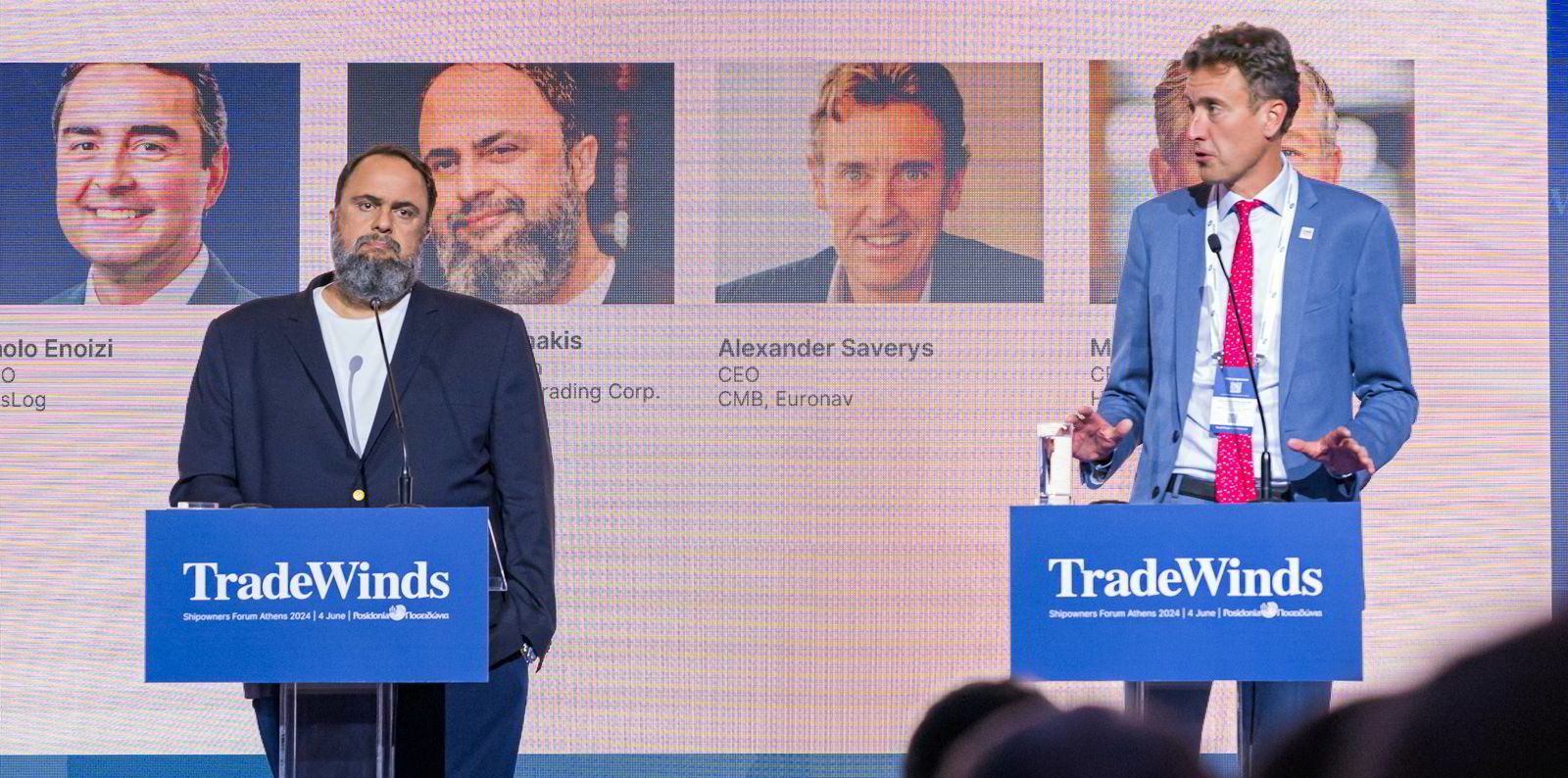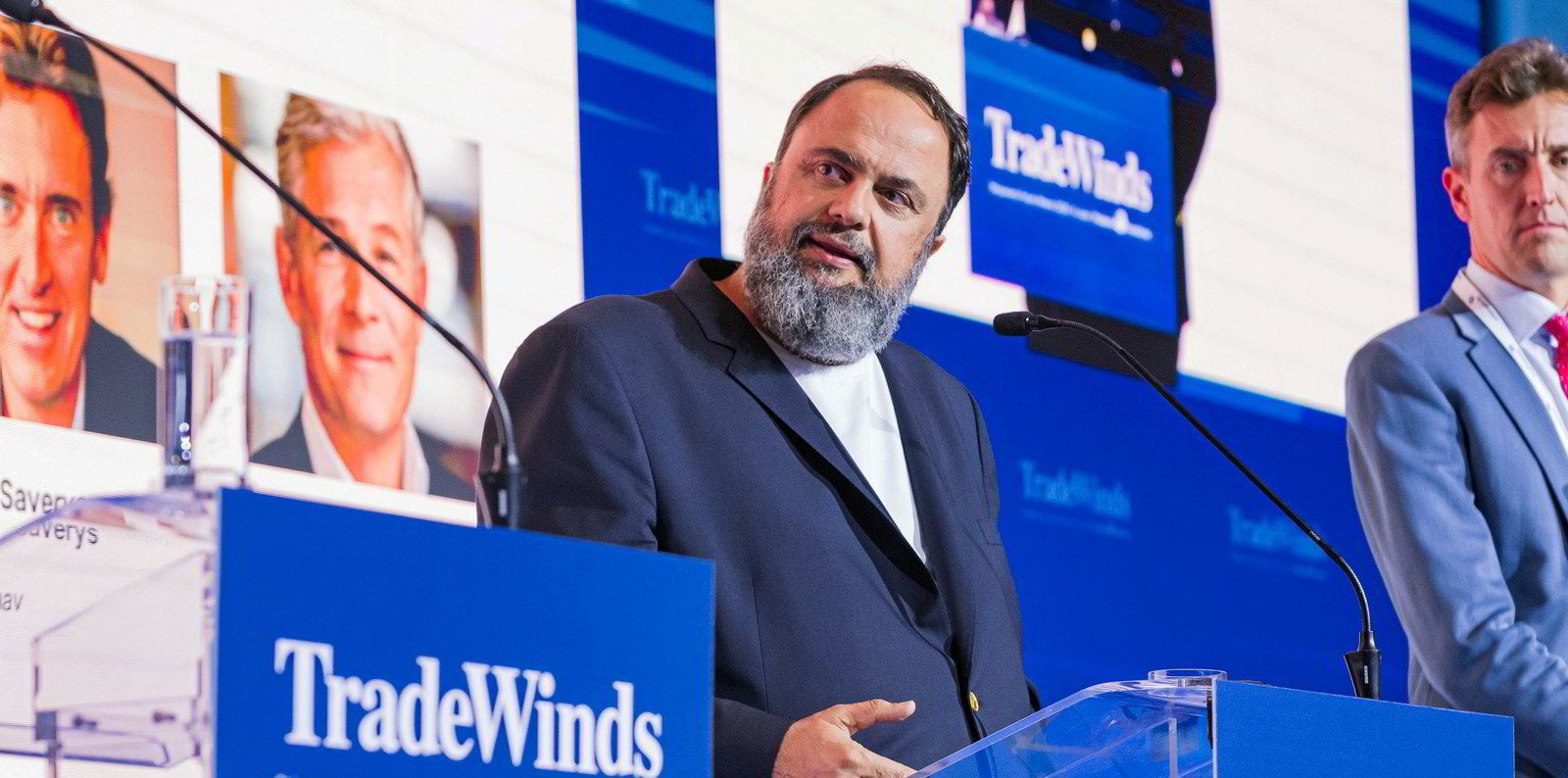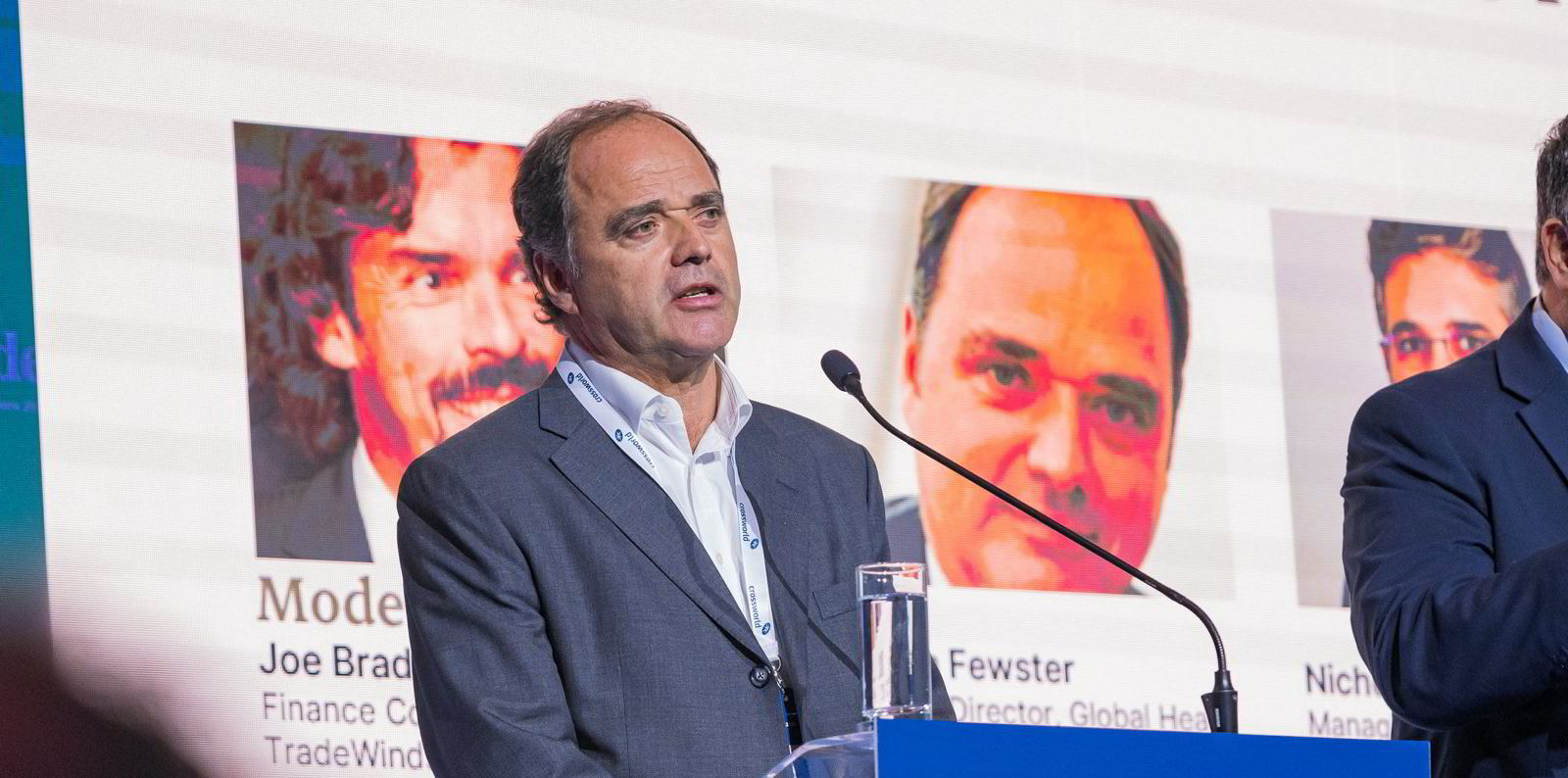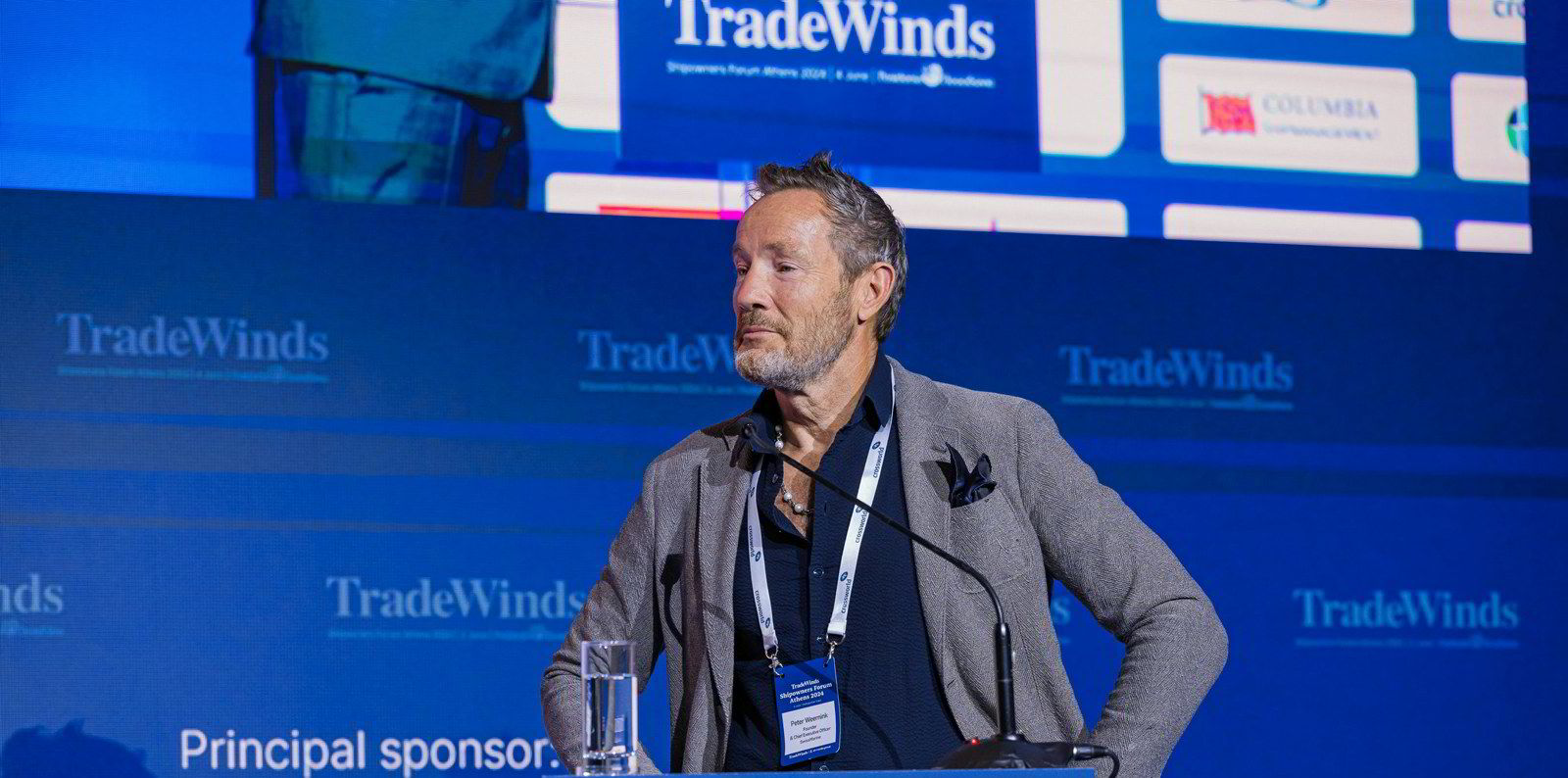Tanker owners are beginning to wonder if the optimism being felt at Posidonia is too good to last or is built on a firmer foundation than in shipping’s 2008 heyday.
Evangelos Marinakis and fellow tanker CEOs Alexander Saverys and Mikael Skov told the TradeWinds Shipowners Forum in Athens on Tuesday that tanker capacity is tight and getting tighter.
But they remain wary of “black swan” events that could halt the party.
“A lot of people are concerned about what we see at Posidonia in 2024. We see all of this optimism. It was something similar back in 2008, and two or three months later the collapse started,” said Marinakis, founder and chairman of Capital Maritime & Trading Corp.
“But I think that it’s different today than it was 16 years ago. The demand for energy also increased a lot.”
Europe and the US require a lot more power and water than all those years ago, which will be more important in years to come, he added.
“The other thing is that for a lot of types of vessels for the past 10 years, the newbuilding ordering was minimal or non-existent,” he said.
But the flip side is that geopolitical influences on shipping demand remain unpredictable.
“Tomorrow, we might see a severe trade war between China and the US, and whatever is discussed today will not exist,” Marinakis added. “So we are betting on the good side and we hope that we do not face any big surprises in the near future.”
He thinks diversions of vessels around the Cape of Good Hope to avoid attacks in the Red Sea will continue to tighten the market to the point where a “much better market” will be seen towards the end of this year.
Saverys, CEO of Belgian shipowners Compagnie Maritime Belge and Euronav, echoed these thoughts and warned against excessive optimism.
“In general, all markets are very strong,” he said.
“What worries me, since three days of being here, is that not a lot of people seem to be worried. As Vangelis [Marinakis] said, think of 2008. Please don’t spoil the party.”

And Skov, CEO of product tanker owner-operator Hafnia, said that “undoubtedly” geopolitical risk is the thing he is most worried about currently. Supply-demand fundamentals are “comfortable”.
“Oil markets have never had a demand problem, it’s always been the supply side, and that’s the one that’s under control,” he said.
“We are a little bit back to excitement at Posidonia, but we do think there is risk out there.”
Shipping should also be aware of the demand risk posed not by a US-China trade war, but by economic changes within China, according to Andrian Dacy, CEO of JP Morgan Asset Management’s Global Transportation Group.
“They have been importing a lot of iron ore and now the question is: how long will that last?” he said, referring to dry cargo markets.
Worries surrounding oversupply of tonnage to the market from possible ramping up of Chinese shipbuilding capacity are also misplaced, he added.
“Access to shipyard capacity will be the issue, especially for us in the West,” he said.
China owns more than 50% of global shipbuilding capacity, but many yard slots are being taken up by Chinese owners.
Labour issues in China are slowing production capacity, according to Dacy, but this and other issues don’t “prevent us from generating a lot of money on ships we own”.





